What shapes the identity of an individual? Well, sociologists have a term that’s probably accurate for many us: primary influence. Our parents, siblings, extended family, and friends are usually lumped into the term “primary influence” — and for the first few years of our life, our families are pretty much our world. So, when someone is plucked from their primary influence and thrust into another world where one has new parents and a sibling, what does that do to the identity of an individual? This question, though unstated, makes up the crux of ”Lion.” The basic outline of the narrative is simple: A young boy from a rural Indian village gets separated from his older brother at a train station, and through a series of events, ends up being adopted by a couple in Tasmania, Australia where he grows up.
The movie stars Dev Patel as Saroo Brierley (Sunny Pawar plays five year old Saroo) and chronicles in linear fashion the life of the young boy in India. His family is very poor and he and his older brother Guddu (Abhishek Bharate) look for ways to get money so their family can survive. They steal coal from trains, look for coins on the street, and generally scavenge in their village and nearby towns for anything of value that can be sold for basic things like food. While their life is not an easy one, Saroo and Guddu are very close. They adore each other and Guddu, being the older brother, looks out for Saroo as best he can. One day when Guddu says he’s leaving for a few days for a job, Saroo wants to go with him to work. Saroo convinces his brother that he’s strong enough to work at the job, and Guddu reluctantly takes him on a train to another town late one night where Gaddu is hoping to find work. However, because Saroo is only five, he’s not used to being up so late and falls asleep during the trip. Guddu tries to wake him up when they get to their destination, but Saroo only wants to sleep. After rousing Saroo out of his sleep (but only partly), Guddu tells his brother to stay at the train station and wait for him. Later when Saroo wakes up, he’s alone. There’s no one at the station and he wanders onto an empty train looking for his brother. He falls asleep and is awoken by the movement of the train. Trapped in the train car as the only passenger, the train travels for two days to Kolkata. Once there, Saroo tries to ask people for help, but because he doesn’t speak Bengali, no one quite understands what he’s saying or what he wants. Eventually, he lands in an orphanage and is adopted by a couple in Australia — leaving his home, his family, and even his identity in India.
Flash-forward 20 years, and Saroo is now a man who has not only adopted but embraced the mores and the language of Australia. Except for his first name, he has no outward expressions of his Indian identity. His mother and father, John and Sue (David Wenham and Nicole Kidman),love him unconditionally and have raised him with all the support they would give their biological children — if they had any. It’s clear from this part of the film, director Garth Davis and Screenwriter Luke Davies want to establish that Saroo is a secure, loved, smart, and even successful man. The nurture he received from John and Sue was tremendous, but was complicated by a second adopted son from India, Mantosh (Divian Ladwa). Mantosh seems to be everything that Saroo isn’t: emotionally volatile, unsure of himself, difficult to control, and psychologically unable to fully embrace his new life. As the two boys grow into men, Saroo is clearly the golden boy, while Mantosh is a lost cause with mental health issues. Saroo is on track to get a degree in business (with an emphasis in hospitality), while Mantosh lives like a hermit in a cabin near his family’s home. John and Sue love both boys, but clearly Mantosh’s mental illness has taken a toll on Sue. She tries to gloss over it, but can’t keep her sadness over Mantosh’s fate at bay.
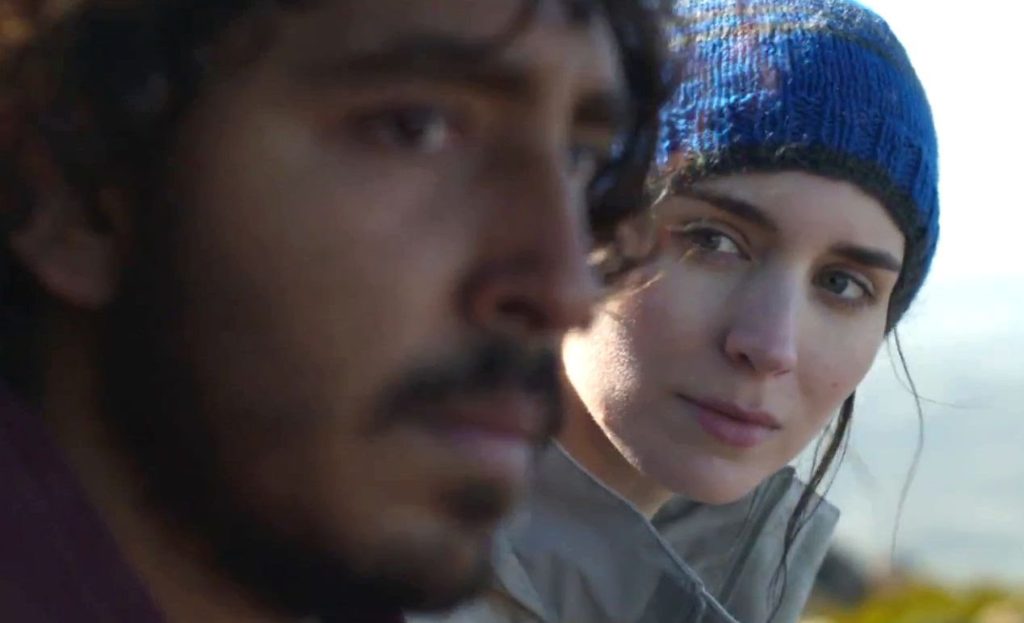
Dev Patel and Rooney Mara
While at college, Saroo meets some fellow students who are from India, and while they are getting to know each other, he’s asked about his Indian background. At first, Saroo claims to be from Kolkata, but then confesses that he’s from a poor family in a village about a thousand miles from Kolkata. When one of his classmates suggests he use Google Earth to calculate train speeds and rail lines from Kolkata outward in a radius to find the village he’s from, he balks at the idea. Then, triggered by a memory of India while at a party, he dives headlong into Google Earth to locate his home. He immerses himself so far into the search that he alienates his parents, his brother, and his girlfriend (Rooney Mara) to the point that it affects their mental health.
The desire to know who you are, to be secure in your identity, and to be loved are all urges that drive Saroo to find that what’s missing in his life — or so he thinks. He does eventually travel back to India, but I won’t give away what’s awaiting him. What I will highlight, however, is how muted this film is. There’s a quietness to it that kind of lays over the drama below, and it’s done to great effect. All the actors — but especially Patel and Kidman — shine in roles where they must play a range of emotions to convey longing, loss, love, and loneliness. In lesser hands, the actors could have botched it, but because Patel and Kidman are skilled performers who know when to bring subtle touches to scenes that are emotionally overwrought, the film doesn’t suffer from bad acting.
”Lion” is clearly an awards film, but it’s not like many that get released for consideration. That is to say, it’s not a depressing slog through the drama of suicide, divorce, alcoholism, racism, or any other ism that becomes a platform for actors to show their range — but often leaves the audience emotionally drained or just numb from the experience. Rather, the film tackles some weighty questions about identity, home, and the power of love in an uplifting and satisfying way.


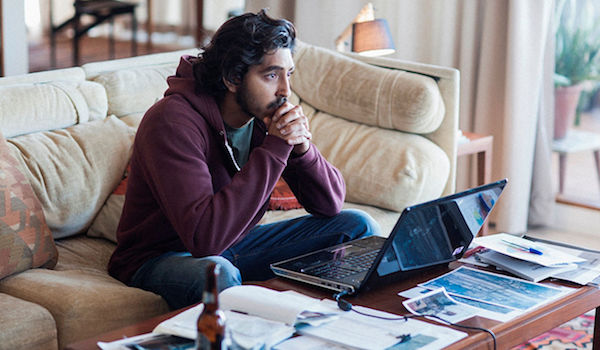
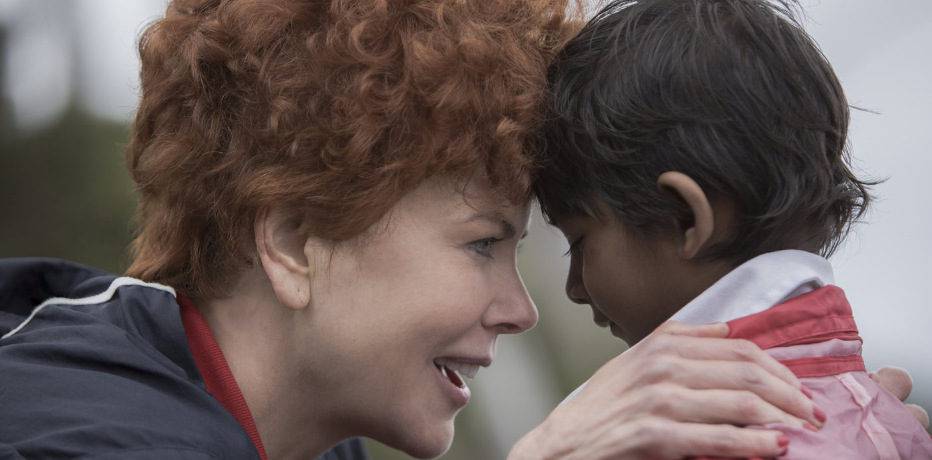
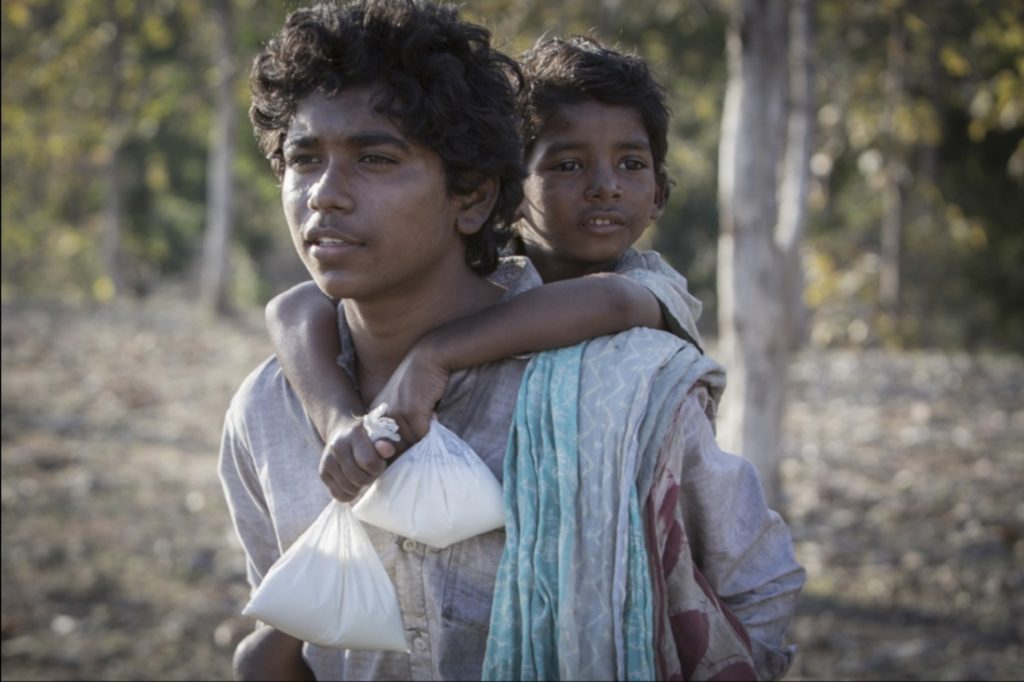
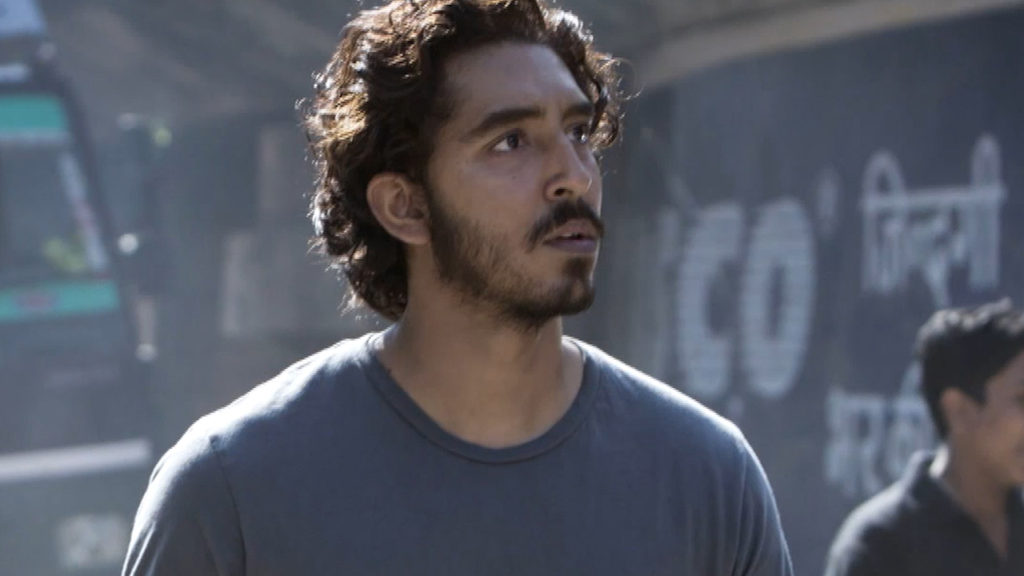



Comments